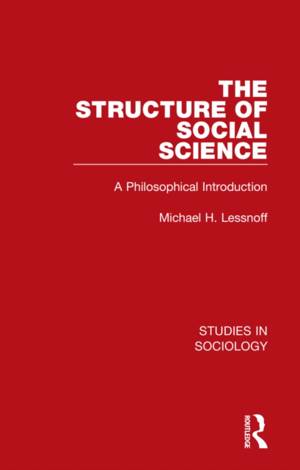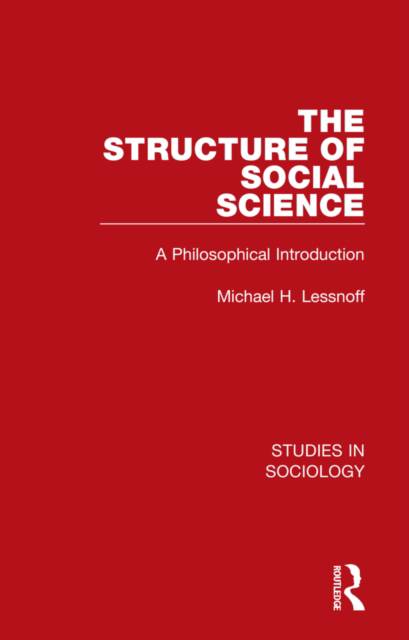
- Retrait gratuit dans votre magasin Club
- 7.000.000 titres dans notre catalogue
- Payer en toute sécurité
- Toujours un magasin près de chez vous
- Retrait gratuit dans votre magasin Club
- 7.000.0000 titres dans notre catalogue
- Payer en toute sécurité
- Toujours un magasin près de chez vous
Description
Originally published in 1974, this book provided a most useful introductory survey of all the major philosophical issues relating to the social sciences at the time. While it covers a remarkable amount of ground in a short space, it is never superficial, for its lucid and careful analysis does full justice to the complexities and controversies of the subject. Nor is it merely a survey, for, while putting all points of view with scrupulous fairness, the author never fails to make clear his own, and to support it with reasoned argument.
The book's basic framework is a comparison of physical and social science, and in this context the author examines the problems of the mental aspect of social life, general laws, the individual and the social, explanation, and the relation of fact to value. He is far from advocating (as is often done) the wholesale acceptance or rejection of the 'physical science model' in the social sciences - rather, he carefully considers the various elements of the model in relation to the nature of social life. A noteworthy feature of this book is the philosophical analysis of statistical correlations and tests of significance, which bulk so large in the practice of social scientists, yet are all too seldom discussed in books of this kind. Also of special interest is the penetrating and original analysis of functionalist explanation in social science. Students of the social sciences and of philosophy will find this an admirable introduction to an important aspect of their respective disciplines.
Spécifications
Parties prenantes
- Auteur(s) :
- Editeur:
Contenu
- Nombre de pages :
- 174
- Langue:
- Anglais
- Collection :
- Tome:
- n° 6
Caractéristiques
- EAN:
- 9781032110141
- Date de parution :
- 18-10-21
- Format:
- Livre relié
- Format numérique:
- Genaaid
- Dimensions :
- 140 mm x 216 mm
- Poids :
- 349 g

Les avis
Nous publions uniquement les avis qui respectent les conditions requises. Consultez nos conditions pour les avis.






